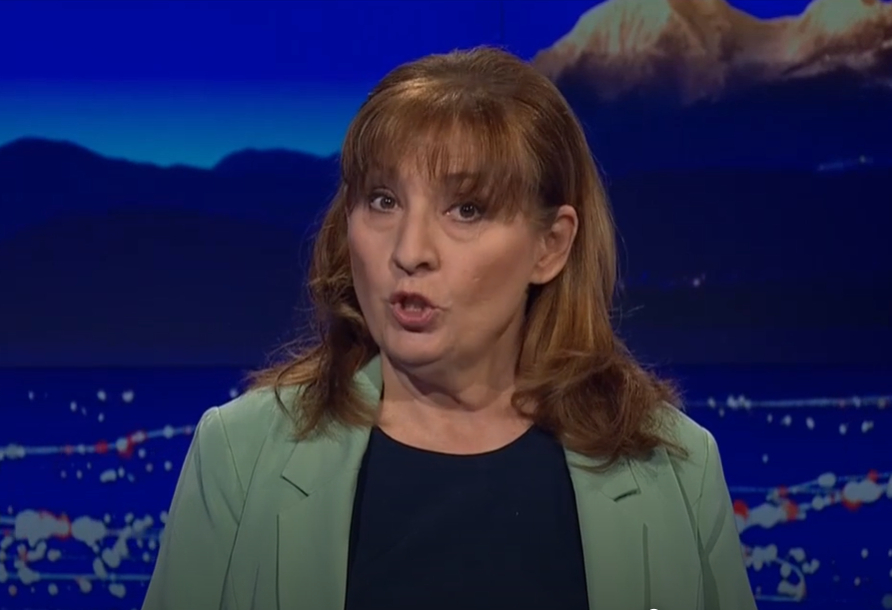By: Sara Kovač / Nova24TV.si
Although the participation of heads of government and countries at this year’s Bled Strategic Forum is several times lower than last year’s, it is possible to notice a huge difference in the coverage of the central media. The reporting of the public RTVS, which is financed by all households, stands out in particular. This year, the events at the Bled Strategic Forum are in the foreground, but last year the event was pushed into the background, as there were much more important events on that day, such as the victory of our cycling ace Primož Roglič on the stage of the race through Spain.
Last year’s Bled Strategic Forum, which took place on September 1st and 2nd, was marked by a record number of foreign leaders in the history of the organisation of this event. As many as 17 presidents of countries and governments came to Slovenia. Anyway, despite the fact that the Bled Strategic Forum is considered a leading international conference in Central and South-Eastern Europe, which offers a platform for expressing and comparing opinions about modern society and its future, the public RTVS apparently did not think it worth that the event would be placed in the foreground.
So last year we were first informed about sporting successes, a medal at the Paralympic Games, and the victory of cycling ace Primož Roglič on one of the stages of the Spanish Vuelta. Then attention was paid to the first day of school, the number of infections, and only after all of that, the Bled Strategic Forum was mentioned. If we can understand the reporting of infections, which significantly shaped our everyday life, and the first day of school, as it was September 1st, it is more difficult to understand why sports successes on this day should be the most important. No one here claims that the successes of Slovenian athletes are not important. After all, our athletes are the country’s best ambassadors in the world, but we would have expected that at least the beginning of an important conference organised by our country, where there were discussions about the future of Europe with the participation of such a large number of foreign statesmen, would be given more attention.
This year everything is different
Anyone who watched yesterday’s Dnevnik news and Odmevi show could see that the coverage was completely different. In the foreground was the Bled Strategic Forum. The presenter Saša Krajnc said in the introduction: “The war in Ukraine and the energy crisis. The topics of the first day of the most important international political meeting in our country.” As it seems, they are aware of the importance of the Bled Strategic Forum on public television, but apparently, they highlight it only when theirs are in power. The reporting on last year’s forum was probably seen as a PR exercise for the government of Janez Janša, at the expense of the record attendance, which is also a reflection of the reputation of the country’s leader, so the event was put in the background.
If the employees of public television had strictly followed the provisions of the Act on Radio Television Slovenia, such differences in reporting on the same matter would not have occurred. Article 5 of the mentioned law clearly states that journalists, RTVS editors and others directly involved in the creation or preparation of RTV programmes are expected, among other things, to especially respect the principle of truth, impartiality and integrity of information in their work; the principle of political balance, worldview pluralism, and the principle of political independence and autonomy of journalists, as well as the provision of impartial and comprehensive information, as citizens thus have the opportunity to freely form their opinions.
The manner of reporting on last year’s forum is not so surprising if one knows that the reporting has been distinctly biased ever since Janez Janša’s government took office. The views of the opposition and all critics of the government, including non-government members who regularly took part in anti-government protests, were brought to the fore, while the views of the other side somehow ran out of space. Although Slovenia was ranked among the most successful countries after facing the covid crisis, recorded record unemployment, and projects in local environments flourished, marginal attention was paid to these topics, so that none of the viewers dare to think that Janez Janša’s government is doing well. Since Robert Golob’s government came to power also with the help of public RTVS, it is not surprising that the work of Golob’s government continues to be celebrated. This is the Slovenian reality, and this case, which we reported on, is just one more proof.
